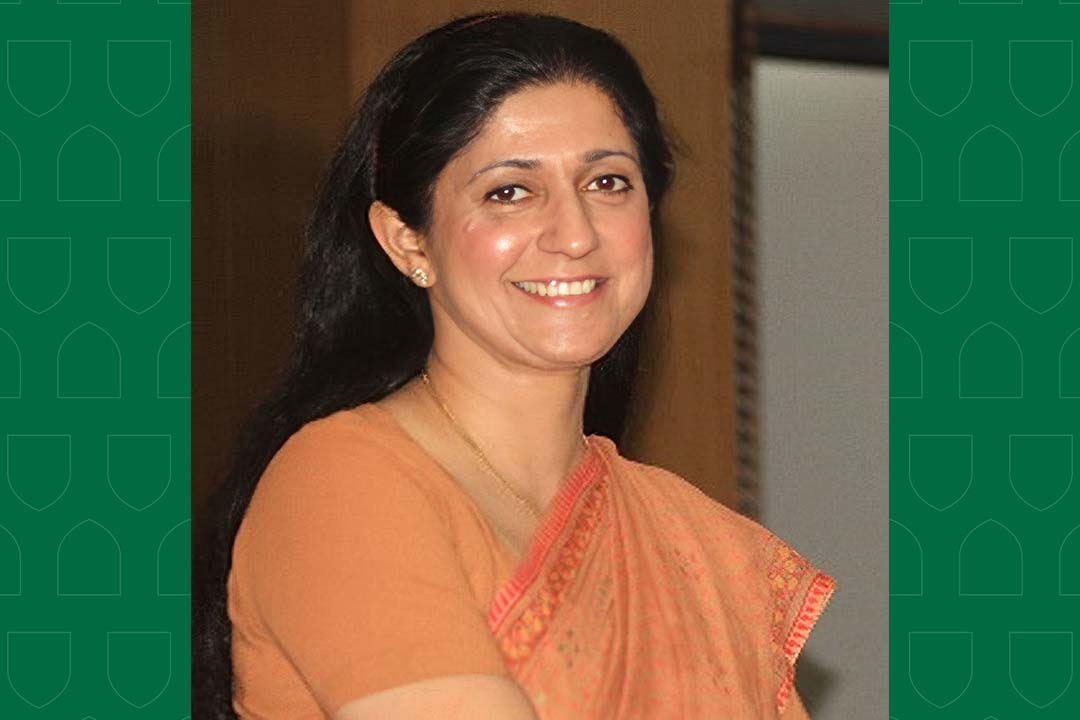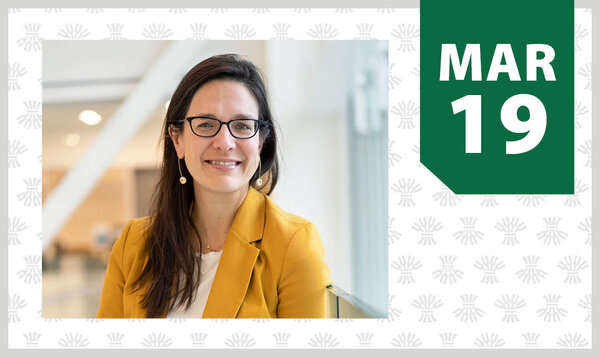
Q&A: Psychology professor shares holistic benefits of yoga
Visiting psychology professor Dr. Meetu Khosla (PhD) is the guest speaker for the Vedanta Endowment Lecture Series
As Dr. Meetu Khosla (PhD) explains, yoga is beneficial in ways that extend beyond a series of physical movements.
Khosla, a psychology professor from the Daulat Ram College at the University of Delhi, India, has been in Saskatoon presenting series of talks about the benefits of yoga at the University of Saskatchewan (USask) as part of the Vedanta Endowment Lecture Series. She will be delivering her last lecture on Oct. 5, which will conclude with a workshop.
Twenty-five years of experience teaching psychology, Khosla is an expert in Indigenous Indian psychology and health, and Indian approaches to healing and medicine, and connecting traditional practices with modern medicine. She has authored two books about her research, including Physiological Psychology: An Introduction and Understanding the Psychology of Health and Well-being.
The lecture series is sponsored by the Vedanta Endowment Fund, the College of Arts and Science, the USask Department of Psychology and Health Studies, and the SHASTRI Indo-Canadian Institute.
The following interview has been edited for length and clarity.
College of Arts and Science: The primary focus of your series of lectures at USask, and in Saskatoon, is about yoga. Why focus on yoga?
Dr. Meetu Khosla (PhD): Because yoga is the science of life—it tells you how to live and it pervades in whatever we do, whatever we think, whatever we feel. It should be understood, experienced and learned.
Yoga is just not exercises—yoga is a philosophy of life. How we can deal with people, how we can deal with our own self, how we can exert self-control, how we can learn to be happy? It's cost free, but it is both cognitive effort and it is also a physical effort. In essence, of how a life has to be dealt with. And I think everybody should be aware about it, so I brought from India a gift for everybody to be happy and healthy.
A&S: You’ve been teaching psychology for about 25 years. How did you decide to focus your research specifically on yoga?
Khosla: Initially, I was a neurocognitive scientist. I was invited to present a lecture on yoga at the University of Toronto in 2012 through the Shastri Fellowship. While delivering a lecture on meditative practices and the benefits of yoga for the mind and body, somebody asked me, “What is your work in this?” I quoted other (researchers), and I said I have no (research) work in this so far. I went back home and it kind of maneuvered my whole way of thinking about things.
I started including yoga—pranayama meditation—into my research work. Over the last 10 years, I've written a lot on this and how it has been beneficial in different psychophysiological aspects. It's very beneficial for enhancing health and well-being.
A&S: What are the benefits—mental and physical—to practicing yoga?
Khosla: If we talk in terms of emotional health, how to deal with negative emotions—feelings of hatred, fear, anger. How we can learn to resolve them, how we can displace them, or how we can substitute with something more positive … Yoga not only helps us to understand what these emotions are we have to deal with, but also these thoughts which have to be contained and regulated.
Of course, yoga helps to give us physical health in terms of controlling our breathing rate, the way we eat our food, the way we think about people, dealing with people, and our psychophysiological tendencies.
Yoga is a link between mind and behavior... It helps each and every person right from a small age to the elderly age. Yoga is everywhere.
A&S: From a Western perspective, the focus of yoga seems to be more on physical benefits. What are some of the differences between the Western interpretation of yoga and traditional Indian view of yoga?
Khosla: You can't say that yoga belongs to a particular (group). There are different types of yoga. It's not Western, but Indian. Yoga is a science which was developed and was compiled by Patanjali (The Yoga Sutras of Patanjali) into a system of thought and the benefits can be accrued by anybody.
My emphasis is basically dealing with mindfulness and breathing exercises, these can help us to relax, and these can help us to understand what the human being is as a whole. It’s all about finding meaning in life, going to a higher level of consciousness.
For me, my perspective of yoga is basically to enlighten people about not looking for solutions outside, but (solutions are) right inside us, to search within and to find comfort within—to develop a sense of compassion and forgiveness.
Dr. Meetu Khosla will be wrapping up the Vedanta Endowment Lecture Series on yoga on Thursday, Oct. 5 with a lecture and workshop.


